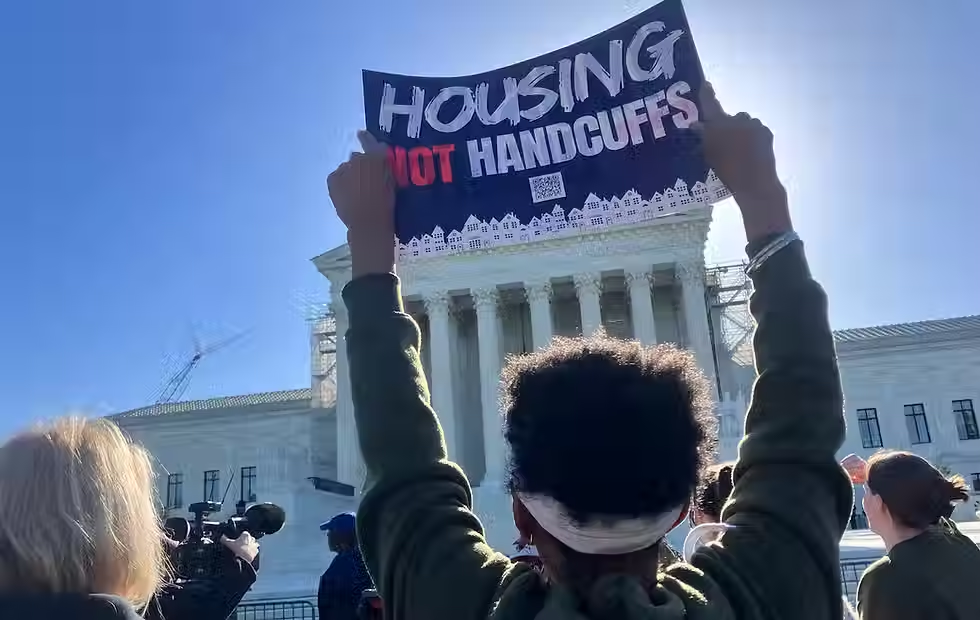Johnson v. Grants Pass: The Criminalization of Homelessness in America
- Isabelle Lung

- Apr 30, 2025
- 3 min read

Johnson v. Grants Pass
The Supreme Court has ruled: sleeping outside is now a crime. On June 28th, 2024, Johnson v. Grants Pass officially allows cities to fine and arrest people for sleeping outside, even when no safe alternatives exist. In other words, homelessness is now illegal.
Grants Pass, Oregon, initially began issuing tickets to individuals sleeping in public areas, despite a shortage of housing units and shelter beds. In 2018, Johnson v. Grants Pass was originally filed, arguing that this treatment violated the Eighth Amendment, which prohibits cruel and unusual punishment. After all, what can be more cruel and unusual than punishing the unhoused for being unhoused? This case highlights the daily reality of unhoused individuals: being fined, or rather, being punished regardless of safe alternatives.
In response, the Supreme Court offered its sincerest condolences to unhoused individuals: We understand you have no home. We understand there are no available shelters nearby. We most certainly understand you have nowhere to go. Just make sure that “nowhere” is not in a public space, otherwise, we’ll have no option but to fine you.
The Judicial Shift in Homelessness Policy
The criminalization of homelessness is certainly nothing new. In 2018, Martin v. The City of Boise ruled it unconstitutional to enforce criminal restrictions on public camping even when no shelters were available, violating the Eighth Amendment. The Ninth Circuit’s ruling prevented cities from arresting or fining unhoused individuals for sleeping outside when no safe alternatives were available, deeming it a cruel and unusual punishment.
Martin v. City of Boise, offered the unhoused protection, after all, they have to exist somewhere; however, Johnson v. Grants Pass fundamentally reversed that protection, criminalizing homelessness once again. The Supreme Court rejected the argument that it was cruel and unusual for criminalizing public encampments despite no other safe alternative for shelter. Arguing that fining unhoused individuals does not result in terror, therefore not cruel; and, punishments are commonplace, so not unusual either.
Is it considered a cruel and unusual punishment to fine individuals for sleeping outside when no nearby shelters exist? The Ninth Circuit would respond with yes, and, hopefully, your answer is as well. Disappointingly, however, that answer does not extend to the Supreme Court, holding that it is not a cruel punishment for arresting homeless people regardless of safe alternatives.
The Cycle of Criminalized Homelessness
What causes homelessness? Although a thorough answer would prove extensive, it ultimately boils down to: a lack of affordable housing, income inequality, health issues, domestic violence, and systemic racial disparities, to name a few. If the solution to homelessness is criminalization, it fundamentally disregards the underlying issues at hand.
In truth, Johnson v. Grants Pass only incentivizes cities to punish unhoused individuals rather than offering real solutions. After all, why should a city invest millions in adorable housing and accessible health care when cities can legally push these individuals out, or hide them in jails? This is not a solution, it’s patchwork.
Does this ruling create a ruthless cycle of homelessness? When cities criminalize homelessness instead of addressing its root causes, this only intensifies further homelessness. Cities have no incentive to offer long-term solutions, and more people inevitably end up unhoused. Rinse and repeat.
Solution Over Criminalization
Cities must not criminalize the unhoused for being unhoused, instead, cities must offer concrete solutions. According to the National Assembly to End Homelessness, the most effective solution to homelessness is offering access to housing without preconditions, along with supportive services to address unemployment, health issues, and drug treatment.
Image Source: The Oregonian




Comments